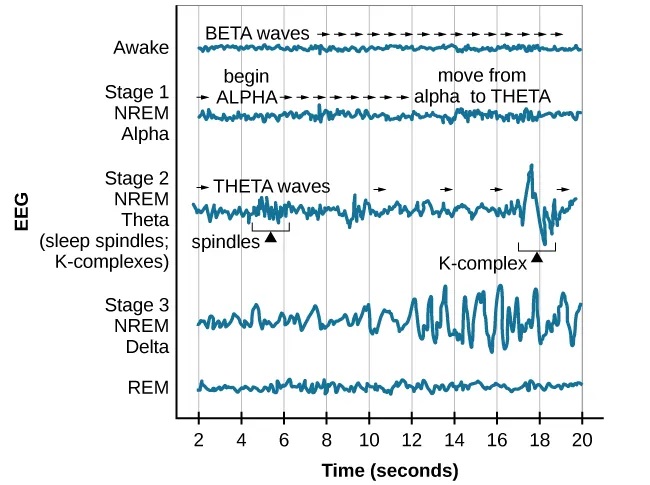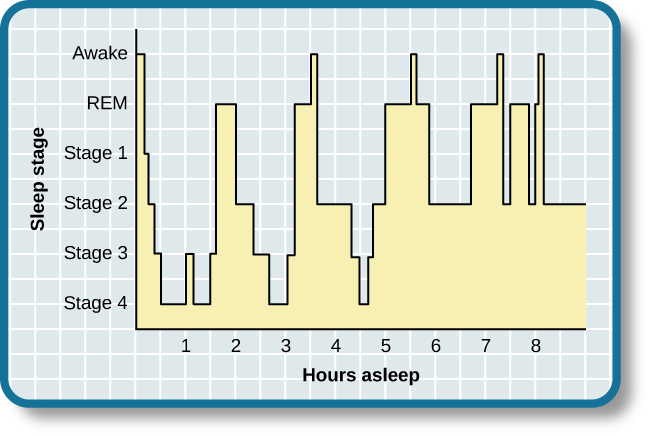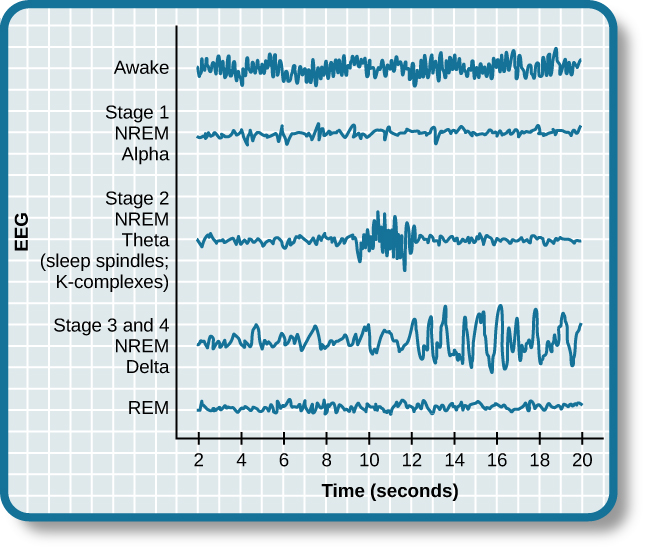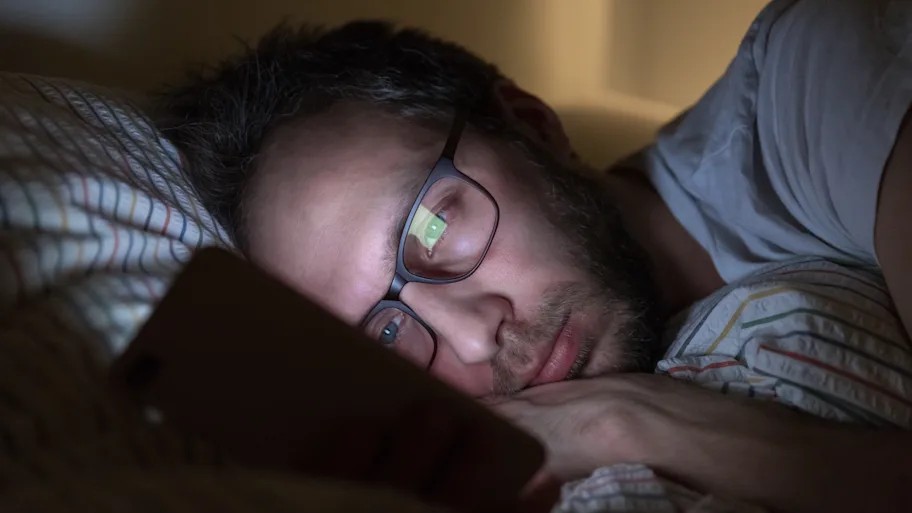
The Science of Slumber: A Comprehensive Guide to Mastering Your Sleep Health
The Ultimate Guide to Reclaiming Your Rest: An In-depth Look at Sleep Health
In our fast-paced, always-on world, a full night of quality sleep can feel like an unattainable luxury. We chase productivity, manage demanding schedules, and often sacrifice rest in the process, leading to a silent public health crisis of sleep deprivation. Many, in a desperate search for rest, turn to quick-fix solutions, from over-the-counter aids to unverified remedies, hoping for a magic bullet to solve their sleep woes. However, true, restorative sleep isn’t found in a bottle or a fad; it’s a fundamental pillar of our well-being, deeply rooted in science, biology, and daily habits. Understanding the intricate mechanics of sleep is the first step toward reclaiming it.
This comprehensive guide moves beyond superficial tips to provide a deep dive into the architecture of sleep, the modern factors that sabotage it, and the evidence-based strategies you can implement to build a sustainable foundation for restful nights. By focusing on holistic practices that encompass your environment, lifestyle, and mindset, you can unlock profound benefits for your physical and mental health. This journey is about more than just logging hours; it’s about improving your entire life, from enhancing your Mental Health and Stress Management to boosting your daily productivity and overall sense of vitality.
Section 1: The Architecture of Sleep: Understanding the ‘Why’ Behind Your Zs
To effectively improve something, you must first understand it. Sleep is not a passive state of unconsciousness but a highly active, structured process that is critical for our survival and well-being. True Sleep Health is defined by four key metrics: duration (getting enough), quality (deep and restorative), timing (aligning with your body’s natural clock), and regularity (maintaining a consistent schedule).
The Four Stages of the Sleep Cycle
Throughout the night, your brain cycles through two main types of sleep: Non-Rapid Eye Movement (NREM) and Rapid Eye Movement (REM). A full cycle typically lasts 90-110 minutes and repeats several times.
- NREM Stage 1: This is the very light sleep you experience as you drift off. Your heartbeat, breathing, and eye movements slow down, and your muscles relax. It’s a brief, transitional phase.
- NREM Stage 2: You spend about 50% of your total sleep time in this stage. Your body temperature drops, and brain waves slow further. This stage is crucial for memory consolidation, where the brain processes and files away information from the day.
- NREM Stage 3: Known as deep sleep or slow-wave sleep, this is the most restorative stage. During this period, your body focuses on physical repair, growing and repairing tissues, building bone and muscle, and strengthening the immune system. Waking from this stage leaves you feeling groggy and disoriented.
- REM Sleep: This stage occurs about 90 minutes after falling asleep. Your eyes move rapidly from side to side behind closed lids. Breathing becomes faster and irregular, and your heart rate and blood pressure increase to near-waking levels. This is when most dreaming occurs, and it is essential for emotional regulation, learning, and memory.
Why Sleep is a Non-Negotiable Pillar of Health
Chronic sleep deprivation has been linked to a host of serious health problems. From a Health & Wellness perspective, quality sleep is as vital as a balanced diet and regular exercise. It strengthens your immune system, helps regulate hormones that control appetite (ghrelin and leptin), and reduces the risk of chronic illnesses like heart disease and diabetes. For Mental Health, sleep is paramount. It allows the brain to process emotions and clear out metabolic waste, reducing the risk of anxiety and depression. A well-rested mind is a cornerstone of Personal Development and achieving a healthy Work-Life Balance.
Section 2: The Modern Saboteurs of Sleep: Identifying Common Pitfalls
Despite its importance, modern life is filled with obstacles that disrupt our natural sleep patterns. Recognizing these saboteurs is the first step toward mitigating their impact and improving your sleep hygiene. Many of these pitfalls have become so ingrained in our daily routines that we fail to see the damage they cause.

The Blue Light Epidemic and Your Circadian Rhythm
Our bodies operate on a 24-hour internal clock called the circadian rhythm, which is heavily influenced by light exposure. The blue light emitted from smartphones, tablets, laptops, and televisions is particularly disruptive. Exposure to this light in the evening tricks your brain into thinking it’s still daytime, suppressing the production of melatonin, the hormone that signals your body it’s time to sleep. This is a prime example of how Technology for Home can inadvertently harm our well-being if not managed correctly.
Real-World Scenario: Sarah, a remote worker, often finishes her workday and immediately transitions to scrolling social media or watching TV until bedtime. She struggles to fall asleep, feeling “wired but tired.” Her evening screen time is directly delaying her sleep onset by disrupting her natural melatonin release, a common issue for those navigating Remote Work.
The Caffeine and Alcohol Trap
Many people rely on caffeine to power through the day and alcohol to unwind at night, creating a vicious cycle. Caffeine has a half-life of about 5-6 hours, meaning a 2 PM coffee can still be affecting you at 10 PM, making it harder to fall asleep. While alcohol may induce drowsiness initially, it severely disrupts sleep architecture later in the night. It suppresses REM sleep and often leads to more frequent awakenings, leaving you feeling unrefreshed. This highlights the importance of mindful consumption, a key topic in Nutrition News and Holistic Health.
The Anxious Mind and Stress Overload
The relationship between stress and sleep is bidirectional: stress and anxiety make it difficult to sleep, and lack of sleep exacerbates stress and anxiety. When you’re stressed, your body produces cortisol, a hormone that promotes alertness. Lying in bed with a racing mind, worrying about work, Personal Finance, or family life, keeps your nervous system in a state of high alert, making sleep impossible. Practices like Mindfulness and Meditation are powerful tools for calming this physiological response and are central to effective Stress Management.
Section 3: Building Your Sleep Sanctuary: Actionable Strategies and Best Practices
Improving sleep isn’t about finding a single trick; it’s about creating a comprehensive system of habits and optimizing your environment. This involves a blend of Home Improvement, personal discipline, and lifestyle adjustments.
Optimize Your Environment for Rest
Your bedroom should be a sanctuary dedicated to sleep and intimacy only. This means removing TVs, workstations, and other distractions.
- Darkness is Key: Invest in blackout curtains or a quality eye mask to block out all light, which signals to your brain that it’s time to produce melatonin.
- Keep it Cool: The ideal temperature for sleep is between 60-67°F (15-19°C). A cooler room helps facilitate the natural drop in body temperature required for sleep. A Smart Home thermostat can automate this.
- Minimize Noise: If you live in a noisy area, consider using a white noise machine, a fan, or earplugs to create a consistent, soothing soundscape.
- Focus on Comfort and Decor: Your bed, pillows, and bedding should be comfortable and supportive. Consider using natural, breathable fabrics. A clutter-free space, a core principle of Minimalism and Decluttering, can also promote a sense of calm. Simple Home Decor choices, like calming colors, can contribute to a restful atmosphere.

Craft a Powerful Wind-Down Routine
A consistent pre-sleep routine signals to your body and mind that it’s time to transition from the activity of the day to a state of rest. This routine should begin 30-60 minutes before your desired bedtime.
- Disconnect from Screens: Power down all electronics at least an hour before bed to avoid blue light exposure.
- Engage in Calming Activities: Replace screen time with relaxing habits. This could include Reading a physical book, gentle stretching or Yoga News-inspired poses, listening to calm music, or taking a warm bath.
- Practice Mindfulness: A 10-minute Meditation session or journaling can help process the day’s events and quiet a racing mind, making it a powerful tool for Self-Improvement.
The Role of Diet and Exercise
Your daily habits significantly impact your nightly rest. Incorporating good Fitness Tips and paying attention to your diet are crucial. Regular physical activity can improve sleep quality, but timing is important—avoid intense workouts within 2-3 hours of bedtime. From a nutritional standpoint, avoid heavy meals, spicy foods, and excessive fluids close to bed. Some foods, like tart cherries, nuts, and kiwi, contain compounds that may promote sleep. For more ideas, explore Healthy Recipes designed for evening meals.
Section 4: Advanced Considerations and When to Seek Help
While establishing strong sleep hygiene is the foundation for most people, some situations require additional attention or professional guidance. It’s important to approach sleep aids with caution and recognize when a deeper issue may be at play.

Natural Aids vs. Foundational Habits
The market is flooded with supplements and products promising better sleep, from melatonin to herbal teas. While some may offer modest benefits in specific situations (e.g., melatonin for jet lag), they should be viewed as supplementary tools, not primary solutions. Many principles from Alternative Medicine and Holistic Health emphasize that these aids work best when combined with foundational lifestyle changes. Relying on any aid without addressing the root cause—be it poor habits, stress, or an unsuitable environment—is like patching a leaky roof without fixing the hole. The goal should always be to cultivate the body’s natural ability to sleep well.
Recognizing a Potential Sleep Disorder
If you practice excellent sleep hygiene but still suffer from persistent sleep problems, you may have an underlying sleep disorder. It’s time to consult a doctor or sleep specialist if you experience any of the following:
- Chronic insomnia (difficulty falling or staying asleep for more than a few weeks).
- Loud, consistent snoring, gasping, or choking sounds during sleep (potential signs of sleep apnea).
- An irresistible urge to move your legs, especially in the evening (a symptom of restless leg syndrome).
- Excessive daytime sleepiness that interferes with your daily activities, such as work or driving.
Professional help is crucial for diagnosing and treating these conditions, which can have serious long-term health consequences if left unaddressed. This is a critical aspect of Aging Well and maintaining long-term vitality.
Conclusion: Your Journey to Restful Nights
Mastering your Sleep Health is one of the most powerful investments you can make in your overall well-being. It is not a passive activity but an active practice that requires intention, consistency, and a deep respect for your body’s biological needs. By moving beyond the allure of quick fixes and focusing on building a robust foundation of healthy habits, you can transform your nights and, in turn, revolutionize your days. Start by understanding the science of your sleep, identifying your personal saboteurs, and methodically building a sleep-promoting environment and routine.
The benefits will extend far beyond feeling less tired; you’ll experience enhanced cognitive function, better emotional regulation, a stronger immune system, and a greater capacity to thrive in all areas of your life, from your career to your personal relationships. Reclaiming your sleep is reclaiming your health, and the journey begins tonight.
You may also like

Sleep Tech: Why I Stopped Worrying About Radiation

Sleep Data Is Lying to You (And Why You Need It Anyway)
Archives
- February 2026
- January 2026
- December 2025
- November 2025
- October 2025
- September 2025
- August 2025
- July 2025
- June 2025
- May 2025
- April 2025
- March 2025
- February 2025
- January 2024
- October 2023
- September 2023
- August 2023
- July 2023
- June 2023
- May 2023
- April 2023
- March 2023
- February 2023
- January 2023
- December 2022
- November 2022
- October 2022
- September 2022
- August 2022
- June 2022
- May 2022
- April 2022
- March 2022
- January 2022
- December 2021
- November 2021
- October 2021
- August 2021
- November 2020
- July 2020
- May 2020
- April 2020
- March 2020
- August 2018
- July 2018
- June 2018
- April 2018
- March 2018
Categories
- Aftercare Procedures
- Age Groups
- AI/ML
- Alternative Medicine
- Ambient Computing
- Animal Health
- Animal Husbandry
- Animals
- Anti-Aging
- Architectural Design
- Art And Technology
- Auditory Science
- Augmented Reality
- Automation
- Babies
- Baby
- Beauty & Skincare
- Beauty Industry
- Biohacking
- Biomechanics
- Book Reviews
- Breastfeeding
- Budgeting
- Budgeting Strategies
- Business
- Cardiovascular Health
- Career Advice
- Career Development
- Career Growth
- Cats
- Chess
- Chronobeauty
- Circular Economy
- Civic Technology
- Cleaning Tips
- Cloud Computing
- Cognitive Health
- Cognitive Performance
- Cognitive Science
- Community
- Community Building
- Community Engagement
- Community Living
- Computer Vision
- Consumer Guides
- Consumer Trends
- Container Gardening
- Content Analysis
- Content Non-Technical
- Content Strategy
- Cooking Techniques
- Cosmetic Chemistry
- Cultural Events
- Cycling
- Data Analysis
- Data Engineering
- Data Governance
- Data Science
- Database
- Design Psychology
- Design Trends
- Developer Productivity
- Diet
- Diet
- Diet And Nutrition
- Digital Identity
- Digital Media
- Digital Wellbeing
- DIY
- DIY Projects
- Dogs
- Engineering Culture
- Entertainment News
- Environmental Impact
- Environmental Science
- Equity Compensation
- Ethical AI
- Exercise
- Exercise Science
- Exercise Technique
- Exotic Pets
- Fall Gardening
- Family
- Family Health
- Family Life
- Fashion Business
- Fashion Industry
- Fashion News
- Fashion Tech
- Financial Analysis
- Financial Optimization
- Financial Planning
- Flooring Maintenance
- Food
- Food Psychology
- Food Safety
- Food Science
- Food Tech
- Functional Fitness
- Functional Training
- Future Of Work
- Garden Care
- Garden Maintenance
- Gardening Tips
- Geospatial Data
- Gig Economy
- Greece
- Greek
- Greek Food
- Green Technology
- Gymnastics
- Hardware Engineering
- Health
- Health And Wellness
- Health Informatics
- Health Science
- Health Tech
- Health Technology
- Healthcare
- Healthcare Management
- Healthy Eating
- Healthy Recipes
- Holistic Health
- Holistic Wellness
- Home & Living
- Home Decor
- Home Financing
- Home Health
- Home Improvement
- Home Maintenance
- Home Organization
- Home Styling
- Horticulture
- Household Chemistry
- Identity Management
- Indoor Gardening
- Industrial Design
- Industry Analysis
- Infant Nutrition
- Infrastructure Management
- Ingredient Deep Dive
- Integrative Health
- Integrative Medicine
- Interior Design
- Internet of Things
- Internet of Things (IoT)
- Invalid Request
- Investment Strategies
- Investment Strategy
- IoT
- Kids
- Leadership Development
- Learning Strategies
- Lifestyle
- Lifestyle Brands
- Lifestyle News
- Lifestyle Optimization
- Literary Criticism
- Literature
- Logistics Management
- Machine Learning
- Material Science
- Materials Science
- Meal Planning
- Media Analysis
- Meditation
- Mental Health
- Mental Performance
- Mental Wellness
- Miami
- Miami Food
- Mind And Body
- Minimalism
- Mobile Development
- Neuroscience
- No Applicable Categories
- Nursing
- Nutrition
- Nutrition News
- Open Source
- Operating Systems
- Operational Resilience
- Opinion
- Organization Tips
- Outdoor Living
- Over 40
- Over 50
- Over 60
- Parenting
- Parenting
- Parenting Strategies
- Performance
- Performance Optimization
- Personal Development
- Personal Finance
- Personal Growth
- Personal Productivity
- Pet Care
- Pet Safety
- Philosophy
- Plant Care
- Politics
- Product Formulation
- Productivity
- Productivity Engineering
- Protein
- Psychology
- Psychology of Space
- Quantified Self
- Reading Culture
- Real Estate Investment
- Recipes
- Regulatory Compliance
- Remote Work
- Renovation Planning
- Resource Management
- Respiratory Health
- Responsible Pet Ownership
- Retail Strategy
- Retail Technology
- Robotics
- Science
- Seafood
- Seasonal Gardening
- Security
- Sedentary Health
- Self-Care
- Skincare Science
- Skincare Trends
- Sleep
- Sleep Health
- Smart Home
- Smoothies
- Social Impact
- Soft Skills
- Soil Health
- Spatial Computing
- Spatial Design
- Stress Management
- Supplements
- Sustainability
- Sustainability Science
- Sustainable Engineering
- Sustainable Fashion
- Systems Engineering
- Tax Optimization
- Tax Strategy
- Tech Investment
- Technical Writing
- Testing
- Travel
- Travel News
- Travel Safety
- Travel Tips
- Trend Analysis
- Tropical Plants
- Uncategorized
- Urban Gardening
- Urban Planning
- User Experience
- Veggie
- Vietnam
- Virtual Events
- Volunteering
- Wealth Management
- Wearable Technology
- Web Development
- Wellness
- Wellness Technology
- Winter Gardening
- Work-Life Balance
- Workplace Culture
- Workspace Setup
- World
- Writing
- Writing Skills
- Year In Review
- Yoga
- Yoga News
- Zero Waste

Leave a Reply